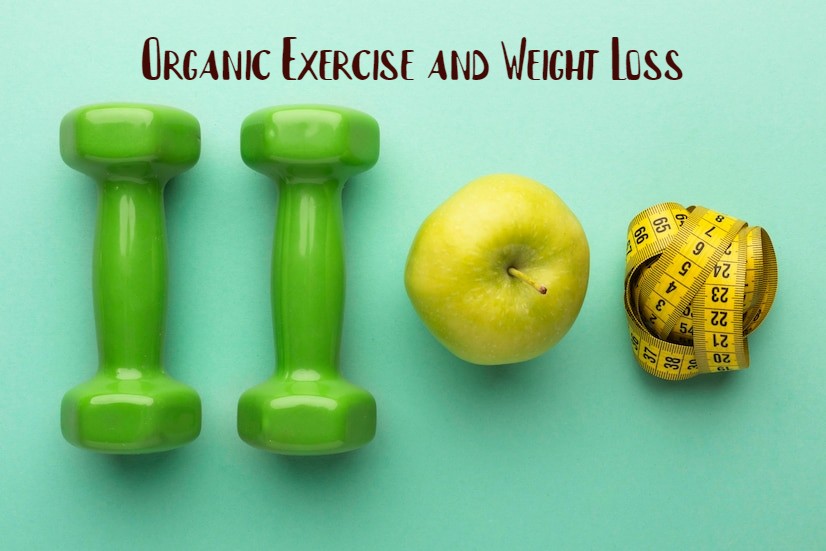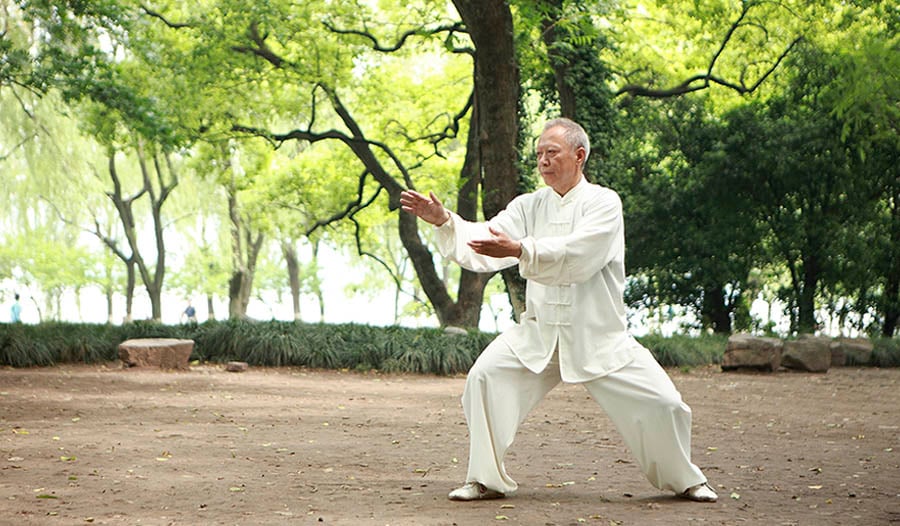Organic Sport vs. Traditional Sport

As a sports enthusiast, you may have come across the terms organic sport and traditional sport. While the two may sound similar, they differ in various aspects. Organic sport refers to sports that are played with natural or organic equipment, while traditional sport refers to sports played using artificial or synthetic equipment.
If you are interested in taking up sports, it’s crucial to know the differences between organic and traditional sport. Organic sports have gained popularity in recent years due to their eco-friendliness and minimal impact on the environment. Organic sports like rock climbing, hiking, and swimming are played using natural equipment like ropes, rocks, and water bodies.
On the other hand, traditional sports like basketball, football, and tennis are played using synthetic equipment like balls, nets, and rackets. These sports may have a higher impact on the environment due to the production and disposal of synthetic equipment. However, both organic and traditional sports have their benefits and downsides, and it’s essential to choose a sport that aligns with your values and preferences.
Organic Sport | Traditional Sport | |
|---|---|---|
| Equipment | Natural or organic equipment like ropes, rocks, and water bodies | Artificial or synthetic equipment like balls, nets, and rackets |
| Impact on Environment | Minimal impact due to the use of natural equipment | Higher impact due to the production and disposal of synthetic equipment |
| Examples | Hiking, rock climbing, swimming | Soccer, basketball, tennis |
| Benefits | Eco-friendly, connection with nature, minimal equipment cost | Structured competition, widespread availability, team building |
| Downsides | Limited accessibility in certain areas, requires knowledge of outdoor safety | Can be expensive due to the cost of equipment, environmental impact |
What is Organic Sport?
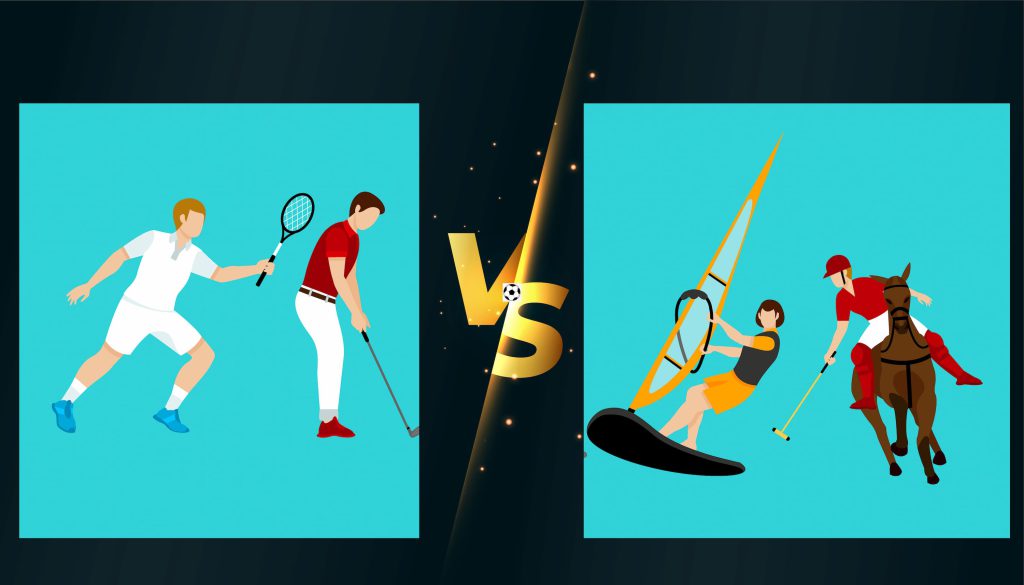
Organic Sport refers to sports that are played with a focus on sustainability and environmental responsibility. This approach emphasizes the use of eco-friendly materials, sustainable practices, and minimizing the carbon footprint associated with sports.
Benefits of Organic Sport:
Organic Sport offers numerous benefits, including:
- Environmental Friendliness: By using eco-friendly materials and sustainable practices, Organic Sport helps reduce the carbon footprint associated with sports.
- Improved Health: Organic Sport also promotes physical activity and healthy living, leading to improved overall health and wellbeing.
- Community Building: Organic Sport often involves local communities and encourages social interaction and team-building.
- Cost-Effective: Organic Sport can be cost-effective in the long run since eco-friendly materials and sustainable practices often reduce costs associated with traditional sports.
Examples of organic sport
Sports that prioritize organic and natural practices:
Many sports have begun to prioritize organic and natural practices, ranging from the equipment used to the methods of training and competition. One example is organic farming practices used in golf courses, which utilize natural fertilizers and pest management methods to reduce the impact of chemicals on the environment.
Another example is rock climbing, which often relies on natural features of the environment rather than artificial holds, reducing the need for non-organic materials. Additionally, surfing and other water sports have begun to prioritize the use of eco-friendly materials for wetsuits and surfboards, such as natural rubber and recycled materials.
Harvard University has been at the forefront of promoting organic and natural practices in sports. The university has implemented various initiatives to promote sustainable practices in sports, such as recycling programs, energy-efficient lighting, and the use of organic fertilizers on playing fields.
In addition to implementing sustainable practices in their athletic operations, Harvard University also conducts research on the benefits of organic and natural practices in sports. Harvard.edu is a leading resource for research on the topic, with numerous studies exploring the impact of organic and natural products on athletic performance, as well as the potential environmental and health benefits of these practices.
You can get more information in this field by visiting the website of this university.
Successful examples of organic sport in action
There are several successful examples of Organic Sport in action. One example is the World Surf League, which has committed to reducing its carbon footprint by adopting sustainable practices such as using solar panels to power events, reducing waste, and promoting eco-friendly materials for surfboards and wetsuits. Another example is the Major League Baseball Green Program, which promotes eco-friendly practices and sustainable development in baseball stadiums across the United States. This program has reduced water and energy consumption, promoted recycling, and encouraged the use of sustainable materials in stadium construction.
The National Hockey League has also taken steps towards promoting sustainability in their sport. The NHL Green program focuses on reducing the league’s environmental impact by promoting sustainable practices and using eco-friendly materials, such as recycled plastic for arenas and energy-efficient LED lighting. The program has also launched several community initiatives to promote sustainable practices and environmental education among fans.
Overall, these successful examples of Organic Sport in action demonstrate the effectiveness of prioritizing sustainability and environmental responsibility in sports. By adopting eco-friendly practices and using sustainable materials, sports organizations can reduce their environmental impact while also promoting healthy living and community building through sports.
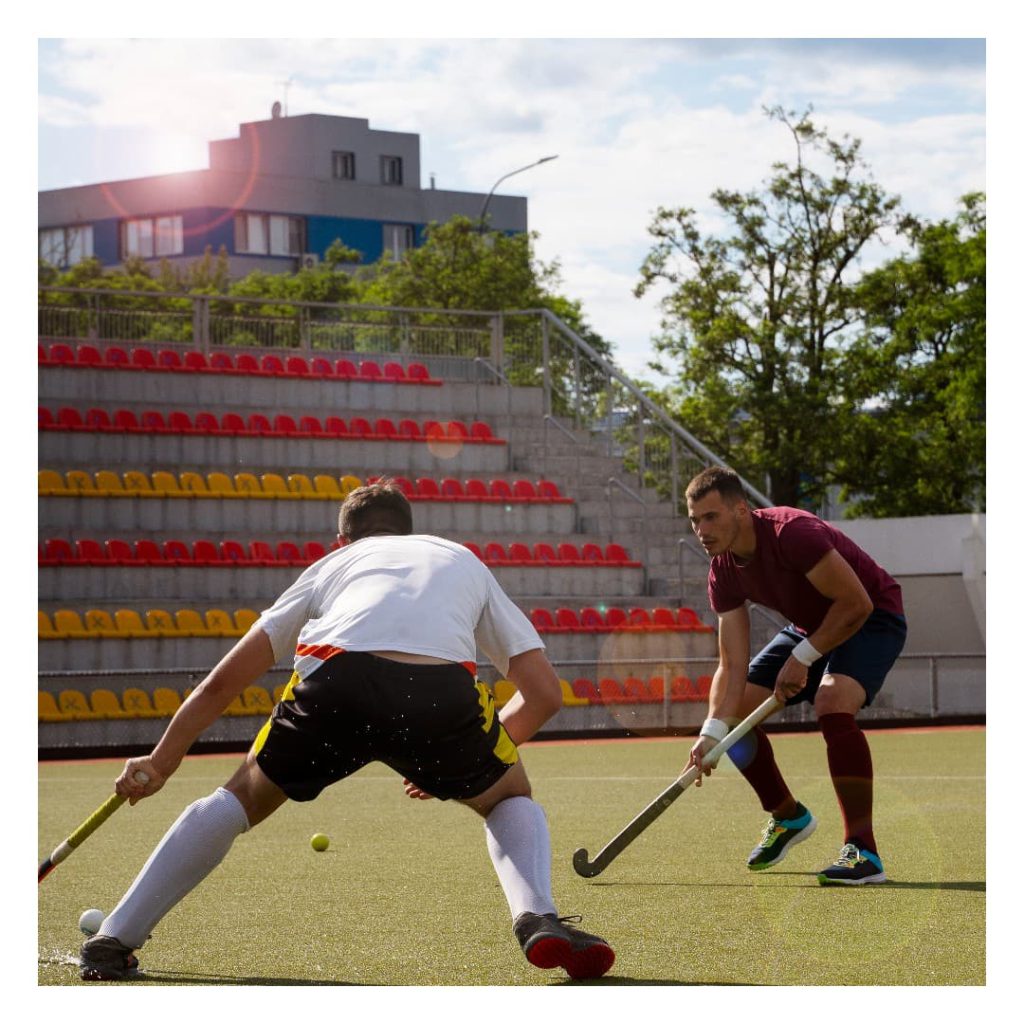
What is Traditional Sport?
Traditional Sport is the conventional approach to sports that is widely practiced and followed. It involves using traditional sports equipment and materials and may not always focus on environmental responsibility.
Benefits of Traditional Sport:
Traditional Sport also offers numerous benefits, including:
- Widespread Popularity: Traditional Sport is widely practiced and followed, with a large following around the world.
- Professional Opportunities: Traditional Sport offers professional opportunities for athletes and coaches, with many leagues and teams around the world.
- Cultural Significance: Traditional Sport often has cultural significance, representing national or regional identity.
- Established Infrastructure: Traditional Sport has an established infrastructure, including stadiums, training facilities, and leagues, making it easier for players and fans to participate and engage.
Examples of traditional sport:
Traditional sport encompasses a wide range of sports that have been played for generations and have cultural significance in various parts of the world. Some examples include football (soccer), basketball, baseball, cricket, rugby, and tennis, among others. These sports have established rules and regulations, professional leagues, and large followings around the world. They often have a rich history and cultural significance, representing national or regional identity and promoting community building through shared passion for the sport.
Football (soccer) is one of the most popular traditional sports in the world, with an estimated 3.5 billion fans globally. It has a long history dating back to the 1800s and has established professional leagues in countries around the world. Basketball, while originating in the United States, has also gained popularity globally and is played in leagues around the world, including the NBA and FIBA. Baseball, which originated in the United States and is popular in other parts of the Americas and Asia, has a long history dating back to the 1800s and has established professional leagues such as Major League Baseball in the United States and Nippon Professional Baseball in Japan.
Cricket is another traditional sport with a long history and cultural significance in countries such as India, Pakistan, Australia, and England. It is played professionally in countries around the world and has established international competitions such as the ICC Cricket World Cup. Rugby is another sport with a strong cultural significance in countries such as New Zealand, Australia, South Africa, and the United Kingdom, and is played professionally in leagues such as the Rugby Premiership in the UK and Super Rugby in Australia and New Zealand.
Finally, tennis is a traditional sport with a long history and established professional leagues such as the ATP and WTA. It is played around the world and has cultural significance in countries such as the United States, France, and England, where major tournaments such as the US Open, French Open, and Wimbledon are held.
Overall, traditional sport represents a rich cultural history and passion for sports around the world. These sports have established rules, regulations, and professional leagues, and offer opportunities for community building and cultural exchange through shared passion for the sport.

Comparison of Organic Sport vs. Traditional Sport:
While both Organic Sport and Traditional Sport offer unique benefits, they differ in their approach and emphasis. Organic Sport focuses on environmental responsibility and sustainability, while Traditional Sport emphasizes popularity, professional opportunities, and cultural significance.
Organic Sport may be more suitable for individuals who prioritize environmental responsibility and healthy living, while Traditional Sport may be more suitable for individuals who are interested in pursuing professional opportunities or cultural significance.
Environmental Impact:
Organic sports activities have less of an impact on the environment than traditional sports. For example, hiking and trail running have a lower carbon footprint than sports events that require large amounts of energy and resources.
Organic sports also promote environmental conservation and sustainability. For example, paddleboarding and surfing require a clean ocean environment, and participants often engage in beach cleanups and environmental activism.
Traditional sports events, on the other hand, can have a significant environmental impact. For example, large sports events require transportation, energy, and resources, which can contribute to air and water pollution and waste.
Accessibility:
Organic sports activities are often more accessible than traditional sports. Organic sports do not require specialized equipment or facilities and can be done in natural environments that are available to the public. Traditional sports, on the other hand, often require specialized equipment and facilities, which can be expensive and not accessible to everyone. Additionally, traditional sports often have barriers to entry such as age restrictions or gender-specific rules.
Community Support:
Organic sports activities often support local communities. For example, organic sports events can promote local businesses such as outdoor gear stores and eco-tourism. These events can also bring attention to environmental issues that affect the community.
Traditional sports events, on the other hand, often prioritize profit over community support. These events can displace local residents, contribute to traffic congestion and noise pollution, and have a negative impact on the environment.
Differences in approach and philosophy:
The approach and philosophy behind Organic Sport and Traditional Sport are vastly different. Organic Sport places a strong emphasis on sustainability and environmental responsibility, while Traditional Sport prioritizes popularity, professional opportunities, and cultural significance. Organic Sport is all about utilizing eco-friendly materials, adopting sustainable practices, and reducing the carbon footprint associated with sports. Traditional Sport, on the other hand, focuses on traditional sports equipment and materials and may not always prioritize environmental responsibility.
Advantages and disadvantages of both types of sport:
Both Organic Sport and Traditional Sport offer unique advantages and disadvantages. Organic Sport offers benefits such as environmental friendliness, improved health, community building, and cost-effectiveness. However, it may not offer the same level of professional opportunities as Traditional Sport, and may not have the same cultural significance. Traditional Sport, on the other hand, has a large following around the world, offers professional opportunities for athletes and coaches, and often has cultural significance representing national or regional identity. However, it may not be as environmentally responsible as Organic Sport and can be more costly in the long run.
The growing popularity of organic sport:
The popularity of Organic Sport is rapidly growing due to its emphasis on sustainability and environmental responsibility. People are becoming increasingly aware of the need to reduce their carbon footprint and adopt sustainable practices in all areas of life, including sports. Organic Sport provides a way for individuals to engage in physical activity while also being mindful of the impact they have on the environment. As a result, more and more sports organizations are adopting eco-friendly materials and sustainable practices, and Organic Sport is gaining traction in the sports world. Additionally, the community-building aspect of Organic Sport is also contributing to its growing popularity, as local communities are coming together to promote healthy living and environmental responsibility through sports.
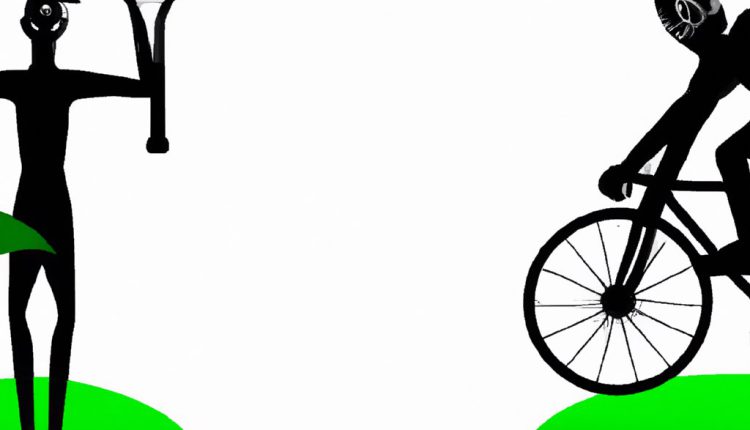
Conclusion:
In conclusion, Organic Sport and Traditional Sport are two different approaches to sports, each with its own benefits and drawbacks. Organic Sport offers numerous benefits, including environmental friendliness, improved health, community building, and cost-effectiveness. Traditional Sport also offers benefits, including widespread popularity, professional opportunities, cultural significance, and established infrastructure.
Both approaches have their place in the sports world, and individuals should choose the one that aligns with their personal values and goals.
Traditional sport may involve the use of synthetic materials, such as plastic balls and equipment, and the use of chemical fertilizers and pesticides on fields and courses. Organic sport, on the other hand, seeks to minimize the impact on the environment by using natural and sustainable materials and methods.
Organic sport can help reduce the environmental impact of athletic activities, promote sustainability, and support local communities. Additionally, organic sport may provide health benefits by reducing exposure to harmful chemicals and encouraging a more natural lifestyle.
Examples of organic sport may include activities such as hiking, rock climbing, kayaking, and surfing, as well as sports played on natural surfaces, such as grass or sand.
Yes, traditional sports can be made more organic by using eco-friendly materials and practices, such as using organic cotton uniforms, using natural turf instead of synthetic turf, and reducing water consumption on fields and courses.
One of the main challenges of organic sport is the cost associated with using eco-friendly materials and practices, which may be more expensive than traditional options. Additionally, finding suitable locations for organic sport activities, such as natural water sources for kayaking and surfing, can be a challenge in some areas.
You can get involved in organic sport by seeking out eco-friendly athletic activities and events in your community, advocating for sustainable practices in traditional sports, and supporting companies and organizations that prioritize sustainability in their products and services.
